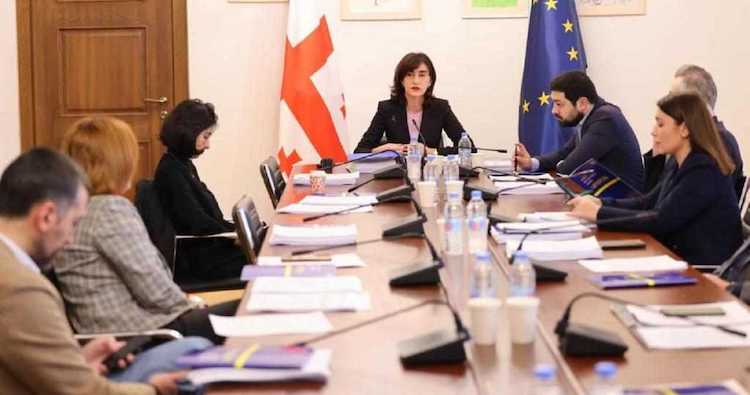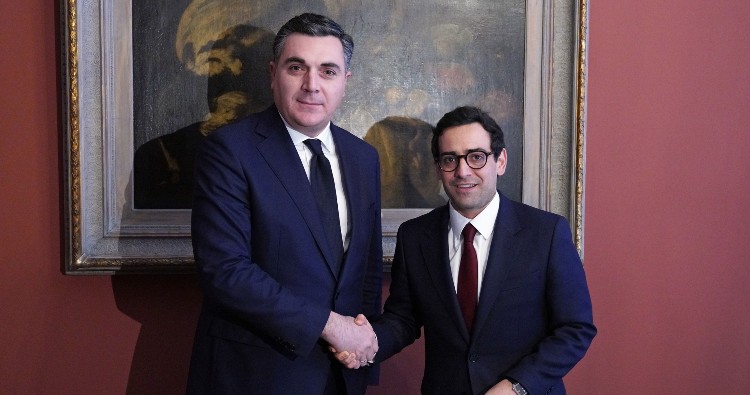Georgian Parliament’s EU Integration Committee reviews environmental, accounting, education bills for Association Agreement

EU Integration Committee discussed bills related to protection of biological diversity and maritime code, changes to domestic accounting and auditing systems, and the global convention on recognition of higher education qualifications. Photo: Parliament of Georgia
The Georgian Parliament’s European Union Integration Committee on Monday discussed bills related to protection of biological diversity and maritime code, changes to domestic accounting and auditing systems, and the global convention on recognition of higher education qualifications.
The Parliament said the reviews were related to obligations taken up by the country under the Association Agreement signed with the EU in 2014.
Nino Tandilashvili, the Deputy Minister of Environmental Protection, explained the bills on biological diversity and the environmental assessment code would create “solid legal foundations” for the protection of biological diversity, preservation and improvement of quantitative and qualitative characteristics of species and habitats for the implementation of ecological, social and economic functions.
In other changes, the amendments to the maritime code aim to simplify and digitise formalities for ships in the country’s harbours.
The digitised system will allow the harbours to increase the number of received ships and, therefore, the cargo turnover, which, in turn, will contribute to the economic development of Georgia and the sustainability of the maritime sector”, the legislative body added.
The meeting also discussed amendments to the Law on Accounting, Reporting and Auditing, according to which submitting transparency reports becomes mandatory for audit firms.
In addition, it increases “independence and objectivity” of audits and tightens a number of requirements for them.
The discussion on the global convention for the recognition of higher education qualifications noted its ratification was “important” for both Georgian citizens and foreign students.
 Tweet
Tweet  Share
Share



